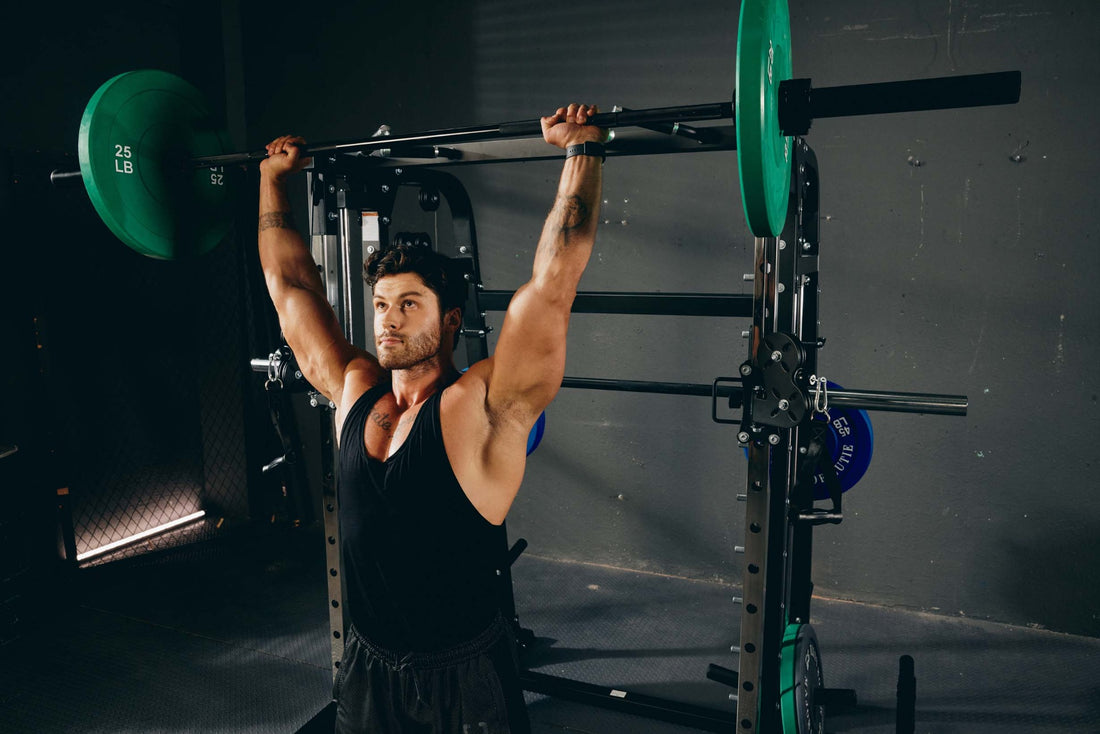
Have you ever loaded up the bar on a Smith machine, ready to crush your personal bench press record, only to find that pushing up even your usual weight feels significantly harder? This is a common observation among lifters, sparking confusion and curiosity regarding the disparity in perceived difficulty between Smith machine and free-weight bench presses. The question of 'Why does Smith machine bench feel harder?' is not only valid but also crucial for those looking to optimize their training routines. As we unravel the science and mechanics behind this phenomenon, you might find the answers more intricate than expected.
The Smith machine, designed for safer lifting, features a barbell fixed on steel rails, allowing only vertical movement. This structural difference is the first clue to understanding why benching on it might feel more challenging. Unlike free weights, which engage both primary and stabilizer muscles due to their unrestricted path, the Smith machine's guided track limits the engagement of these crucial stabilizer muscles. This limitation means that while the primary muscles, like the pectoralis major in the bench press, are still working, the auxiliary muscles that help control and balance the weight in a free-weight bench press are much less involved.
Moreover, the fixed path of the Smith machine forces lifters into a specific lifting trajectory. This can be an issue if the machine’s set path does not align with your body’s natural movement pattern, leading to increased strain on joints and muscles. Every individual's body is different, and the ideal bench press path can vary significantly from person to person. When forced to adapt to the Smith machine's path, lifters may find themselves employing a suboptimal form, which not only makes the lift feel harder but could also elevate the risk of injury.
Another aspect worth considering is the psychological component. Lifting on a Smith machine, knowing that the bar is attached to the rails, could lead to a mental safety net of sorts. This perception might cause lifters to unconsciously apply less force than they would on a free-weight bench press, where the risk of dropping the bar increases. Additionally, the Smith machine’s structure can give a deceptive sense of security, encouraging some users to attempt heavier weights without adequate strength, leading to a tougher lift experience.
Research also points towards the difference in force application. In a free-weight bench press, the barbell can move in multiple planes, requiring the lifter to push upwards while also stabilizing the bar to prevent it from moving forward, backward, or sideways. This multi-plane stabilization recruits more muscle fibers compared to the Smith machine, where the bar's guided path removes the need for horizontal stabilization. The absence of this extra stabilization work in the Smith machine bench may lead to an increased perception of difficulty as the primary muscles must compensate for the lack of auxiliary muscle engagement.
Finally, the difference in muscle activation patterns between the Smith machine and free weights contributes significantly to the perceived disparity in difficulty. Electromyographic (EMG) studies, which measure muscle electrical activity, have shown that free-weight exercises tend to trigger more significant muscle activation than their Smith machine counterparts. More muscle activation not only means a potentially more effective workout but also a more efficient use of the body’s strength, which could explain why switching to the Smith machine feels harder.

Understanding the reasons behind the Smith machine bench press feeling harder is not just an exercise in theory; it's a practical insight that can influence how you approach your workout routine. By recognizing the limitations and benefits of different equipment, lifters can better tailor their training to their goals. Whether it’s incorporating more free-weight exercises to engage stabilizer muscles or using the Smith machine strategically for specific training objectives, the knowledge of how these mechanisms influence your workout is invaluable.
Embracing the unique challenges of each piece of gym equipment, including the Smith machine, is part of the journey toward achieving your strength training goals. Acknowledging that the Smith machine bench press feels harder can be the first step in adapting your routine for balanced and effective training. After dissecting the mechanics, physiological factors,[ and even psychological aspects at play, it’s clear that the question of 'Why does Smith machine bench feel harder?' opens the door to deeper understanding and smarter training strategies. While some may see this challenge as a drawback, it can also be viewed as an opportunity to push your limits and grow stronger, not just physically, but in your knowledge of weightlifting dynamics as well.





















